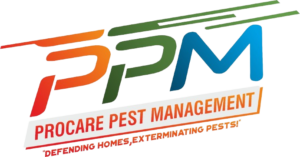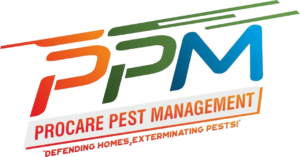How to Protect Your Home from Mosquitoes in Rainy Season : The rainy season is a time of lush greenery, cool breezes, and soothing weather. However, this beautiful season also invites an unwelcome guest into our homes—mosquitoes. The increased humidity, puddles of stagnant water, and overcast skies create the perfect breeding ground for these disease-carrying insects. Protecting your home and family from mosquitoes during this time becomes not just a matter of comfort but of health and safety.
In this blog, we will explore practical, natural, and effective ways to protect your home from mosquitoes during the monsoon, as well as how to reduce the risk of mosquito-borne illnesses like dengue, malaria, chikungunya, and Zika virus.
Why Mosquitoes Multiply During the Rainy Season
Understanding why mosquitoes become so prevalent during the rainy season can help you tackle the problem more effectively.
1. Stagnant Water
Rainwater collects in potholes, plant pots, open buckets, and clogged drains. Mosquitoes lay their eggs in stagnant water, and these larvae mature into adult mosquitoes in just 7–10 days.
2. Humidity and Moisture
High humidity provides an ideal environment for mosquitoes. The rainy season increases atmospheric moisture, helping mosquitoes survive longer.
3. Cooler Temperatures
Mosquitoes thrive in moderate temperatures, and the drop in temperature during rains supports their survival and breeding cycles.
15 Effective Ways to Protect Your Home from Mosquitoes
Below are the most effective preventive strategies to keep your home mosquito-free during the rainy season:
1. Eliminate Stagnant Water Sources
-
Empty unused containers such as flower pots, buckets, and birdbaths.
-
Clean your coolers and water trays every 2–3 days.
-
Fix leaking taps and clogged drains.
-
Don’t allow rainwater to accumulate in your terrace or backyard.
👉 Tip: Even a spoonful of water can breed mosquitoes.
2. Use Mosquito Screens and Netting
-
Install mosquito mesh on windows and doors.
-
Use bed nets, especially in children’s rooms.
-
Cover baby strollers and cribs with mosquito netting.
👉 Tip: This is a chemical-free, long-term solution.
3. Natural Mosquito Repellent Plants
Certain plants act as natural mosquito repellents and can be easily placed around the house:
-
Tulsi (Basil)
-
Lemongrass
-
Lavender
-
Citronella
-
Marigold
These not only add greenery to your home but also repel mosquitoes naturally.
4. Keep Your Home Clean and Dry
-
Don’t leave wet clothes hanging indoors.
-
Wipe kitchen counters and bathrooms regularly.
-
Avoid overwatering plants.
👉 Damp, dark places are mosquito havens.
5. Essential Oils and Natural Sprays
Use the following oils as natural repellents:
-
Eucalyptus oil
-
Tea tree oil
-
Neem oil
-
Lavender oil
Mix a few drops with water and spray around doors, windows, and damp areas.
6. Mosquito Coils and Vaporizers
Use mosquito-repelling products like:
-
Electric vaporizers (e.g., All Out, GoodKnight)
-
Mosquito coils
-
Mosquito mats
👉 Use them in well-ventilated areas and keep them away from infants.
7. Use Camphor for Indoor Protection
Camphor fumes repel mosquitoes. Light a piece of camphor in the room, close the doors for 20 minutes, and return to a mosquito-free space.
8. Lemon and Clove Remedy
Cut lemons in half, insert cloves, and place them on windows or corners. This age-old trick is surprisingly effective.
9. Keep Lights Dim
Mosquitoes are attracted to light, especially blue and UV light. Use yellow LED bulbs or keep the lights dim in open areas during the evening.
10. Use Mosquito Zappers or Electric Rackets
Available in most Indian homes, mosquito rackets are a quick way to kill visible mosquitoes. Keep them charged and use them around sleeping areas.
11. Wear Protective Clothing
During rainy days, wear:
-
Full-sleeved shirts
-
Long pants
-
Socks and shoes
Especially for kids and elderly people when outdoors.
12. Install Air Curtains or Fans
Mosquitoes are weak flyers. High-speed ceiling fans or air curtains at doorways can help block mosquito entry.
13. Outdoor Fogging
Fogging is a highly effective method to kill mosquitoes outdoors in gardens, societies, and nearby water bodies.
-
You can use mosquito fogging machines or hire professional pest control services.
14. Chlorinate Water Tanks and Fountains
Add chlorine or mosquito larvicide tablets to:
-
Overhead water tanks
-
Garden ponds or fountains
-
Decorative pools
👉 It prevents larval development without harming plants.
15. Educate the Community
Your efforts alone won’t work if the neighborhood is full of breeding spots. Encourage community fogging, cleanliness drives, and awareness campaigns.
⚠️ Common Mosquito-Borne Diseases in the Rainy Season
During the monsoon, the risk of diseases increases due to mosquito bites. Here are the most common ones:
| Disease | Mosquito Type | Symptoms |
|---|---|---|
| Dengue | Aedes aegypti | High fever, joint pain, rash, low platelet count |
| Malaria | Anopheles | Fever, chills, vomiting, fatigue |
| Chikungunya | Aedes aegypti | Fever, joint swelling, muscle pain |
| Zika Virus | Aedes species | Rash, fever, red eyes, body pain |
👉 Tip: See a doctor if you develop high fever or rashes during the rainy season.
🛡️ When to Call Pest Control Experts
If your home or area is heavily infested with mosquitoes despite preventive efforts, professional help may be necessary.
Professional Mosquito Control Services Offer:
-
Anti-larval treatments
-
Indoor residual sprays
-
Fogging for societies and gardens
-
Long-term protection packages
Frequently Asked Questions (FAQs)
Q1. What is the best way to kill mosquitoes instantly at home?
A: Use mosquito rackets, zappers, and insect spray for instant results.
Q2. How often should I change water in flower vases and birdbaths?
A: At least every 2–3 days.
Q3. Do mosquito-repellent plants really work?
A: Yes, they help reduce mosquito attraction but work best in combination with other methods.
Q4. Are mosquito coils safe?
A: Use them in ventilated areas and avoid exposure for babies or those with asthma.
Q5. Can mosquitoes breed in plant pots?
A: Yes, especially in the tray under the pots where water collects.
🌟 Conclusion: Stay Mosquito-Free This Monsoon!
Mosquitoes are more than just a nuisance—they are a genuine health hazard, especially in the rainy season. By taking timely preventive steps, using natural and chemical repellents wisely, maintaining cleanliness, and being vigilant, you can significantly reduce the risk of mosquito bites and keep your home safe.
✅ Eliminate stagnant water
✅ Use nets and repellents
✅ Keep your environment clean
✅ Wear protective clothing
✅ Call pest control when needed
Let this monsoon bring only joy and freshness, not mosquito-borne illness. Prevention today ensures safety tomorrow!



